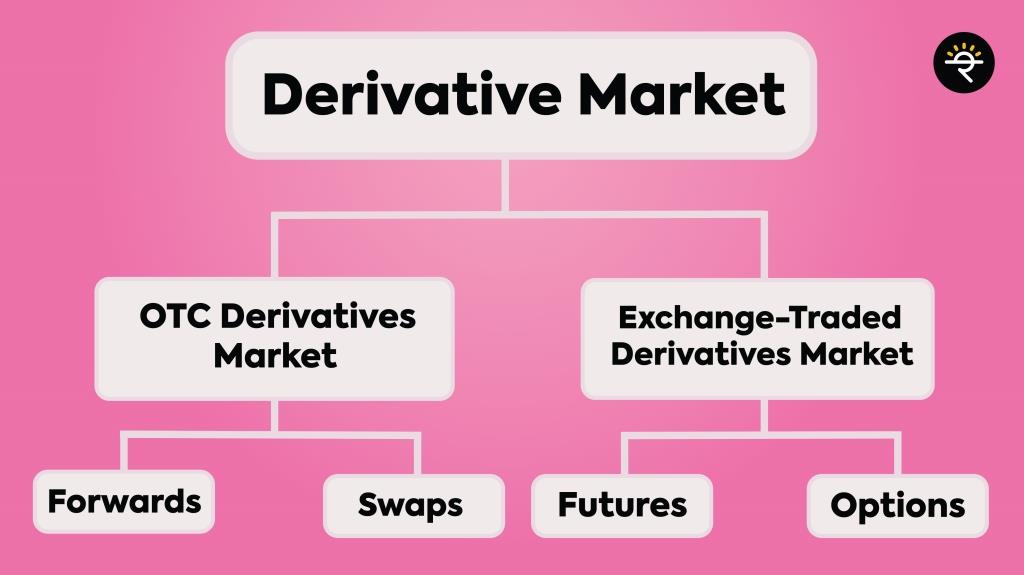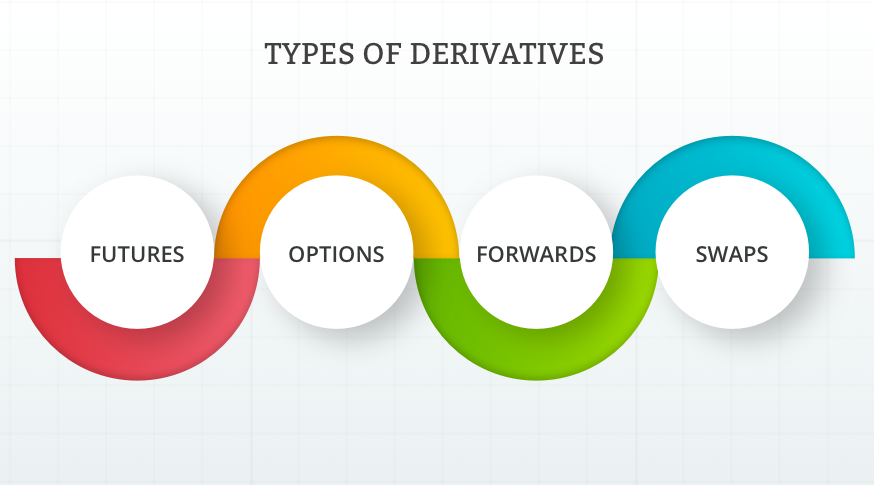Economy
FMDQ to Begin Exchange-Traded Derivatives Market July 12

By Adedapo Adesanya
The MDQ Securities Exchange Limited has announced plans to introduce its dynamic Exchange-Traded Derivatives market on July 12, 2023.
The new market will offer three products – the Federal Government of Nigeria Bond Futures, Treasury Bills Futures, and Open Market Operation Bills Futures, at the commencement of its operations.
The exchange, in a statement, said these products would deliver the dividends of the derivatives market by serving as useful risk management tools, supporting price discovery, competitiveness, and market efficiency, which in turn will help attract capital flows, reduce the cost of capital, promote secondary market liquidity, and ultimately deepen the Nigerian financial markets.
It noted that financial markets are plagued with heightened price volatility, fluctuating market prices/rates, and the constant uncertainty of macroeconomic indicators, with the Nigerian financial markets not faring any better.
Hence, the new ETD market is its response to the counter and assuage these adverse effects; robust and efficient risk management tools, such as derivatives, are typically employed.
“Whilst model markets have been able to harness the potential of the derivatives markets to mitigate risk efficiently, diversify investment portfolios, and allow businesses to pursue expansion with a higher risk in a safe manner, the reverse is the case in emerging and frontier markets, such as Nigeria, as derivatives markets are non-existent or small – with a dearth of derivatives products – at best, and hedging costs are high, making it uninteresting for market participants,” it said.
FMDQ noted that it conducted a feasibility study in 2015 to launch Nigeria’s most dynamic ETD market in collaboration with market stakeholders, thereby introducing exchange-traded risk hedging products to the Nigerian financial markets as is obtainable in other developing and developed financial markets globally.
The project, according to the firm, has recorded many milestones and implemented several initiatives including, but not limited to, the development of the FMDQ ETD Market Framework, SEC-approved Rules, and membership requirements; deployment of fit-for-purpose and optimised ETD trading and clearing modules on the FMDQ Q-ex System; development of Risk Management and Operational Framework across the financial market infrastructure (FMI) value chain; development of SEC-registered derivatives products; and execution of various stakeholder engagements and training sessions.
It was disclosed that it has impacted over 2,600 market stakeholders across the financial markets value chain, ranging from regulators, financial and non-bank financial institutions, corporate treasurers, accountants, legal practitioners, journalists and individuals, to sensitise and promote readiness for the imminent launch of the FMDQ ETD market.
As market participants position themselves to take advantage of the emerging novel segment of the financial markets, FMDQ Exchange is working with its 21 dealing members (DMs), three DMs with full licences and 18 DMs with Approval-in-Principle – to participate in the FMDQ ETD market as its pioneer Derivatives Trading Members (DTMs).
The DTMs will receive support from FMDQ Clear through six (6) Deposit Money Banks (DMBs) who will share mutualised responsibility, as Members of the CCP, in its mandate of ‘de-risking’ the Nigerian financial markets either as General Clearing Members (GCMs) – capable of clearing transactions for their proprietary positions and those of other DTMs and clients; or as Direct Clearing Members (DCMs) – capable of clearing their proprietary positions and those of their clients only.
It said of the six DMBs, there are five GCMs, three of which have full licences (Access Bank Plc, Stanbic IBTC Bank Plc, and Zenith Bank Plc), whilst the other two have Approval-in-Principle, pending the completion of their SEC registration (First City Monument Bank Limited and United Bank for Africa PLC). The sixth DMB (Fidelity Bank PLC) is a DCM with an Approval-in-Principle, also pending the completion of its SEC registration.
In support of the launch of an active and thriving ETD market, FMDQ Exchange introduced the first of its kind Derivates-focused Podcast in Nigeria, Q-Dialogue, an FMDQ-framed colloquy, which is aimed at providing valuable, accurate, and objective information and insight on the FMDQ ETD market.
To further its business development mandate to implement initiatives that promote awareness and drive participation in the FMDQ derivatives market, FMDQ Exchange developed the Q-Estimator, an automated calculator that avails market participants the opportunity to estimate the cost of hedges and potential profit/loss in derivatives transactions or positions in the Nigerian financial markets, thereby equipping market participants to make strategic and informed investment decision-making in the FMDQ derivatives market.
Economy
Tinubu Okays Extension of Ban on Raw Shea Nut Export by One Year

By Aduragbemi Omiyale
The ban on the export of raw shea nuts from Nigeria has been extended by one year by President Bola Tinubu.
A statement from the Special Adviser to the President on Information and Strategy, Mr Bayo Onanuga, on Wednesday disclosed that the ban is now till February 25, 2027.
It was emphasised that this decision underscores the administration’s commitment to advancing industrial development, strengthening domestic value addition, and supporting the objectives of the Renewed Hope Agenda.
The ban aims to deepen processing capacity within Nigeria, enhance livelihoods in shea-producing communities, and promote the growth of Nigerian exports anchored on value-added products, the statement noted.
To further these objectives, President Tinubu has authorised the two Ministers of the Federal Ministry of Industry, Trade and Investment, and the Presidential Food Security Coordination Unit (PFSCU), to coordinate the implementation of a unified, evidence-based national framework that aligns industrialisation, trade, and investment priorities across the shea nut value chain.
He also approved the adoption of an export framework established by the Nigerian Commodity Exchange (NCX) and the withdrawal of all waivers allowing the direct export of raw shea nuts.
The President directed that any excess supply of raw shea nuts should be exported exclusively through the NCX framework, in accordance with the approved guidelines.
Additionally, he directed the Federal Ministry of Finance to provide access to a dedicated NESS Support Window to enable the Federal Ministry of Industry, Trade and Investment to pilot a Livelihood Finance Mechanism to strengthen production and processing capacity.
Shea nuts, the oil-rich fruits from the shea tree common in the Savanna belt of Nigeria, are the raw material for shea butter, renowned for its moisturising, anti-inflammatory, and antioxidant properties. The extracted butter is a principal ingredient in cosmetics for skin and hair, as well as in edible cooking oil. The Federal Government encourages processing shea nuts into butter locally, as butter fetches between 10 and 20 times the price of the raw nuts.
The federal government said it remains committed to policies that promote inclusive growth, local manufacturing and position Nigeria as a competitive participant in global agricultural value chains.
Economy
NASD Bourse Rebounds as Unlisted Security Index Rises 1.27%

By Adedapo Adesanya
The NASD Over-the-Counter (OTC) Securities Exchange expanded for the first session this week by 1.27 per cent on Wednesday, February 25.
This lifted the NASD Unlisted Security Index (NSI) above 4,000 points, with a 50.45-point addition to close at 4,025.25 points compared with the previous day’s 3,974.80 points, as the market capitalisation added N30.19 billion to close at N2.408 trillion versus Tuesday’s N2.378 trillion.
At the trading session, FrieslandCampina Wamco Nigeria Plc grew by N5.00 to trade at N100.00 per share compared with the previous day’s N95.00 per share, Central Securities Clearing System (CSCS) Plc improved by N4.18 to sell at N70.00 per unit versus N65.82 per unit, and First Trust Mortgage Bank Plc increased by 14 Kobo to trade at N1.59 per share compared with the previous day’s N1.45 per share.
However, the share price of Geo-Fluids Plc depreciated by 27 Kobo at midweek to close at N3.27 per unit, in contrast to the N3.30 per unit it was transacted a day earlier.
At the midweek session, the volume of securities went down by 25.3 per cent to 8.7 million units from 11.6 million units, the value of securities decreased by 92.5 per cent to N80.7 million from N1.2 billion, and the number of deals slipped by 33.3 per cent to 32 deals from the preceding session’s 48 deals.
At the close of business, CSCS Plc remained the most traded stock by value on a year-to-date basis with 34.1 million units exchanged for N2.0 billion, trailed by Okitipupa Plc with 6.3 million units traded for N1.1 billion, and Geo-Fluids Plc with 122.0 million units valued at N478.0 million.
Resourcery Plc ended the trading session as the most traded stock by volume on a year-to-date basis with 1.05 billion units valued at N408.7 million, followed by Geo-Fluids Plc with 122.0 million units sold for N478.0 million, and CSCS Plc with 34.1 million units worth N2.0 billion.
Economy
Investors Lose N73bn as Bears Tighten Grip on Stock Exchange

By Dipo Olowookere
The bears consolidated their dominance on the Nigerian Exchange (NGX) Limited on Wednesday, inflicting an additional 0.09 per cent cut on the market.
At midweek, the market capitalisation of the domestic stock exchange went down by N73 billion to N124.754 trillion from the preceding day’s N124.827 trillion, and the All-Share Index (ASI) slipped by 114.32 points to 194,370.20 points from 194,484.52 points.
A look at the sectoral performance showed that only the consumer goods index closed in green, gaining 1.19 per cent due to buying pressure.
However, sustained profit-taking weakened the insurance space by 3.79 per cent, the banking index slumped by 2.07 per cent, the energy counter went down by 0.24 per cent, and the industrial goods sector shrank by 0.22 per cent.
Business Post reports that 25 equities ended on the gainers’ chart, and 54 equities finished on the losers’ table, representing a negative market breadth index and weak investor sentiment.
RT Briscoe lost 10.00 per cent to sell for N10.35, ABC Transport crashed by 10.00 per cent to N6.75, SAHCO depreciated by 9.98 per cent to N139.35, Haldane McCall gave up 9.93 per cent to trade at N3.99, and Vitafoam Nigeria decreased by 9.93 per cent to N112.50.
Conversely, Jaiz Bank gained 9.95 per cent to settle at N14.03, Okomu Oil appreciated by 9.93 per cent to N1,765.00, Trans-nationwide Express chalked up 9.77 per cent to close at N2.36, Fortis Global Insurance moved up by 9.72 per cent to 79 Kobo, and Champion Breweries rose by 5.39 per cent to N17.60.
Yesterday, 1.4 billion shares worth N46.2 billion were transacted in 70,222 deals compared with the 1.1 billion shares valued at N53.4 billion traded in 72,218 deals a day earlier, implying a rise in the trading volume by 27.27 per cent, and a decline in the trading value and number of deals by 13.48 per cent and 2.76 per cent, respectively.
Fortis Global Insurance ended the session as the busiest stock after trading 193.7 million units for N152.7 million, Zenith Bank transacted 120.7 million units worth N11.1 billion, Japaul exchanged 114.8 million units valued at N407.0 million, Ellah Lakes sold 98.4 million units worth N999.2 million, and Access Holdings traded 63.1 million units valued at N1.7 billion.
-

 Feature/OPED6 years ago
Feature/OPED6 years agoDavos was Different this year
-
Travel/Tourism10 years ago
Lagos Seals Western Lodge Hotel In Ikorodu
-

 Showbiz3 years ago
Showbiz3 years agoEstranged Lover Releases Videos of Empress Njamah Bathing
-

 Banking8 years ago
Banking8 years agoSort Codes of GTBank Branches in Nigeria
-

 Economy3 years ago
Economy3 years agoSubsidy Removal: CNG at N130 Per Litre Cheaper Than Petrol—IPMAN
-

 Banking3 years ago
Banking3 years agoSort Codes of UBA Branches in Nigeria
-

 Banking3 years ago
Banking3 years agoFirst Bank Announces Planned Downtime
-

 Sports3 years ago
Sports3 years agoHighest Paid Nigerian Footballer – How Much Do Nigerian Footballers Earn













